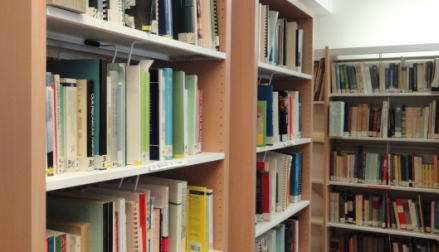| Titre : |
How social science got better: overcoming bias with more evidence, diversity, and self-reflection |
| Type de document : |
livre |
| Auteurs : |
Matthew Grossmann, Auteur |
| Editeur : |
New York : Oxford University Press, NY |
| AnnƩe de publication : |
2021 |
| Importance : |
316 p. |
| ISBN/ISSN/EAN : |
978-0-19-751897-7 |
| Prix : |
29.95 USD |
| Note gƩnƩrale : |
DOI:10.1093/oso/9780197518977.001.0001 |
| Langues : |
Anglais (eng) |
| Mots-clƩs : |
Social sciences Methodology Open science Histoire |
| RƩsumƩ : |
Le site Ć©diteur indique : Social science research is facing mounting criticism, as canonical studies fail to replicate, questionable research practices abound, and researcher social and political biases come under fire. Far from crisis, however, social science is undergoing an unparalleled renaissance of ever-broader and deeper understanding and application-made possible by close attention to criticism of our biases and open public engagement. Wars between scientists and their humanist critics, methodological disputes over statistical practice and qualitative research, and disciplinary battles over grand theories of human nature have all quietly died down as new generations of scholars have integrated the insights of multiple sides. Rather than deny that researcher biases affect results, scholars now closely analyze how our racial, gender, geographic, methodological, political, and ideological differences impact our research questions, how the incentives of academia influence our research practices, and how universal human desires to avoid uncomfortable truths and easily solve problems affect our conclusions. To be sure, misaligned incentive structures remain, but a messy, collective deliberation across the research community is boosting self-knowledge and improving practice. Ours is an unprecedented age of theoretical diversity, open and connected data, and public scholarship. How Social Science Got Better documents and explains recent transformations, crediting both internal and public critics for strengthening social science. Applying insights from the philosophy, history, and sociology of science and providing new data on trends in social science research and scholarly views, it demonstrates that social science has never been more relevant, rigorous, or self-reflective. |
| En ligne : |
https://doi.org/10.1093/oso/9780197518977.001.0001 |
How social science got better: overcoming bias with more evidence, diversity, and self-reflection [livre] / Matthew Grossmann, Auteur . - New York : Oxford University Press, NY, 2021 . - 316 p. ISBN : 978-0-19-751897-7 : 29.95 USD DOI:10.1093/oso/9780197518977.001.0001 Langues : Anglais ( eng)
| Mots-clƩs : |
Social sciences Methodology Open science Histoire |
| RƩsumƩ : |
Le site Ć©diteur indique : Social science research is facing mounting criticism, as canonical studies fail to replicate, questionable research practices abound, and researcher social and political biases come under fire. Far from crisis, however, social science is undergoing an unparalleled renaissance of ever-broader and deeper understanding and application-made possible by close attention to criticism of our biases and open public engagement. Wars between scientists and their humanist critics, methodological disputes over statistical practice and qualitative research, and disciplinary battles over grand theories of human nature have all quietly died down as new generations of scholars have integrated the insights of multiple sides. Rather than deny that researcher biases affect results, scholars now closely analyze how our racial, gender, geographic, methodological, political, and ideological differences impact our research questions, how the incentives of academia influence our research practices, and how universal human desires to avoid uncomfortable truths and easily solve problems affect our conclusions. To be sure, misaligned incentive structures remain, but a messy, collective deliberation across the research community is boosting self-knowledge and improving practice. Ours is an unprecedented age of theoretical diversity, open and connected data, and public scholarship. How Social Science Got Better documents and explains recent transformations, crediting both internal and public critics for strengthening social science. Applying insights from the philosophy, history, and sociology of science and providing new data on trends in social science research and scholarly views, it demonstrates that social science has never been more relevant, rigorous, or self-reflective. |
| En ligne : |
https://doi.org/10.1093/oso/9780197518977.001.0001 |
|  |


 Ajouter le rƩsultat dans votre panier Affiner la recherche Interroger des sources externes
Ajouter le rƩsultat dans votre panier Affiner la recherche Interroger des sources externesHow social science got better: overcoming bias with more evidence, diversity, and self-reflection / Matthew Grossmann (2021)





